STORY about CooperativesDirect ActionTransportationpublié le Avril 27, 2011 by SandraCuffe
History 'Up the Creek'
South Fraser Protection Camp speaks out for local sites, including historical co-operative cannery buildings
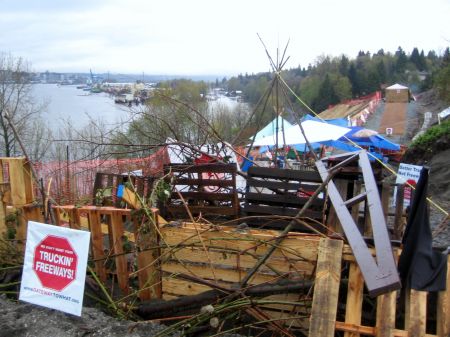
The rain subsides for a while shortly after dawn on day 5 of the South Fraser Protection Camp. Photo: Sandra Cuffe
Also posted by SandraCuffe:
Also in Transportation:
The rain subsided long enough for a few rays of sunshine to greet those chatting by the campfire Tuesday morning, the fifth day of the South Fraser Protection Camp established in Delta to obstruct the construction of the South Fraser Perimeter Road. Among many roadway project impacts raised in discussion, several campers expressed concern about the potential demolition of the historic "Glenrose" salmon cannery buildings between the camp and the Alex Fraser bridge.
"It's a designated heritage site and we're wondering how they got a demolition permit," said local resident and Council of Canadians member Cathy Wilander to the Vancouver Media Co-op, gesturing in the direction of the cannery buildings still standing on stilts in the 1375km waterway, one of the largest salmon-spawning rivers in the world.
Later named 'Glenrose,' the Fraser River Industrial Cannery was originally established and operated by a fishermen's co-operative from 1896 to 1901, according to a Delta Heritage Advisory Commission publication listing local heritage sites in Annieville and Sunbury, both now neighourhoods in Delta affected by the planned roadway. Historical U.S. Fisheries Commission reports outline dozens of salmon canneries established by settlers and changing hands in the northwest in the decades following the opening of the Annieville cannery in 1870, noting the sale of the Fraser River Industrial Cannery to C.S. Windsor in 1902 and then to Peter Birrell in 1905.
"The earliest organization of fishermen in British Columbia occurred in 1893 and had its basis in the exclusion of Chinese from fishing the Fraser River," explains the unattributed introduction to a collection of United Fishermen and Allied Workers Union archives loaned to the City of Vancouver archives in 1974 and later donated to the University of British Columbia library. "However, by the early years of the twentieth century, the primary target of attack was the strict control of prices and wages by the fish canning companies, notably B.C. Packers. The Vancouver [sic] fishermen, as well as their Japanese and Native [sic] counterparts, formed their own associations to combat the companies, which, in turn resorted to scab labour and police action."
"Once they're gone, they're gone," said Wilander of the cannery buildings and historical sites threatened by road expansion and industrial development, also emphasizing that those participating in the action "can observe the comings and goings to the cannery from the camp."
The cannery buildings barely scratch the surface of the history that stands along the proposed path of the South Fraser Perimeter Road; the planned route cuts through a rich repository of Indigenous history dating back thousands of years that has previously been documented but remains unmarked and unprotected. Over the years, many people have spoken out against desecration of the site from industrial, bridge, road and other construction, including campers and visitors at the South Fraser Protection Camp.
"There are so many people speaking out to preserve the history," said Surrey resident, mother, and Stop the Pave organizer PJ Lilley last Friday, shortly before the barricades went up at the worksite and camp set-up began.
While a steady stream of media filtered through the gates of the occupied South Fraser Perimeter Road worksite on Tuesday morning, campers and visitors made toast on the fire, shared coffee, washed dishes, sang songs, and continued discussions about the four-lane, 40km, $1.2 billion road construction project. Organizers continue to invite those interested to visit the camp - located just off River Road, via an entrance located just west of Brooke Road - and discuss the diverse concerns and reasons people are participating in the ongoing action in person.
The site for the Vancouver local of The Media Co-op has been archived and will no longer be updated. Please visit the main Media Co-op website to learn more about the organization.
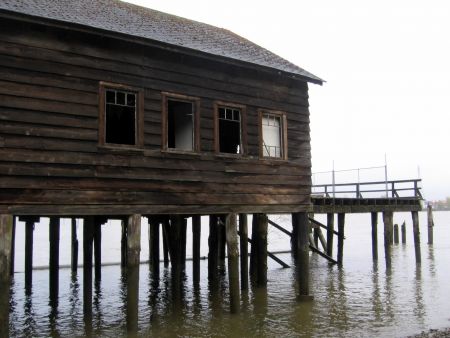
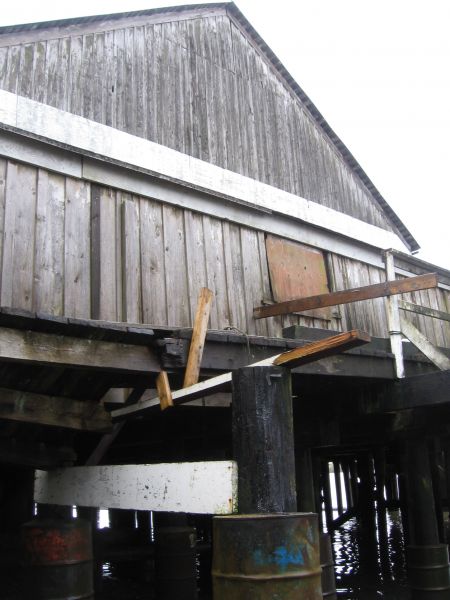
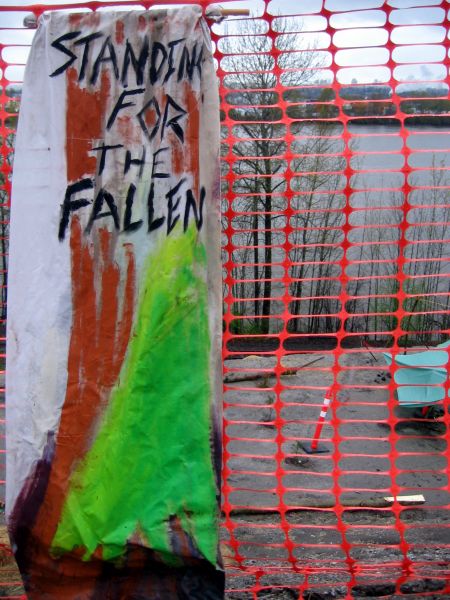
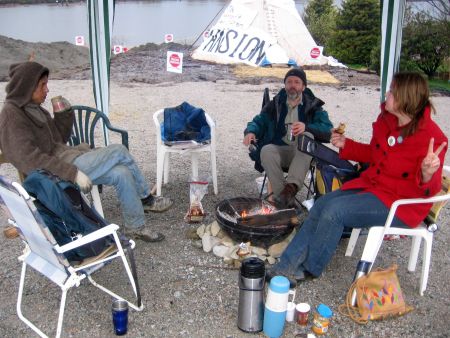
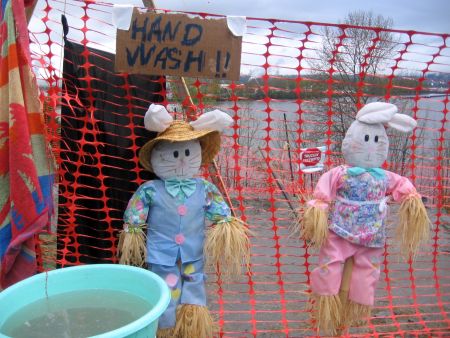
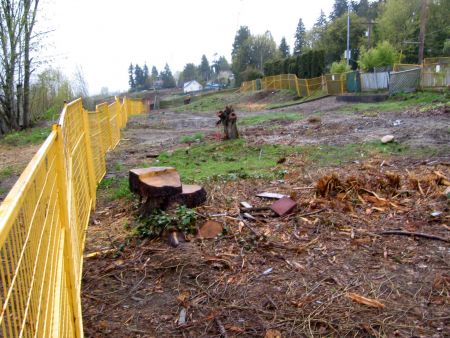
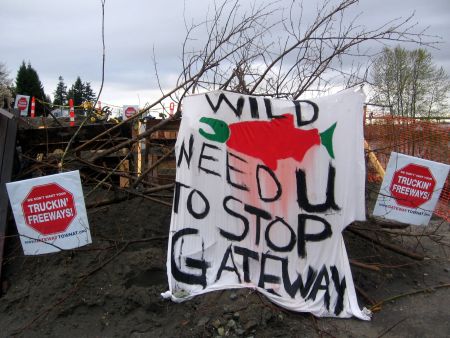
Commentaires
nice one !
great work san!
<3